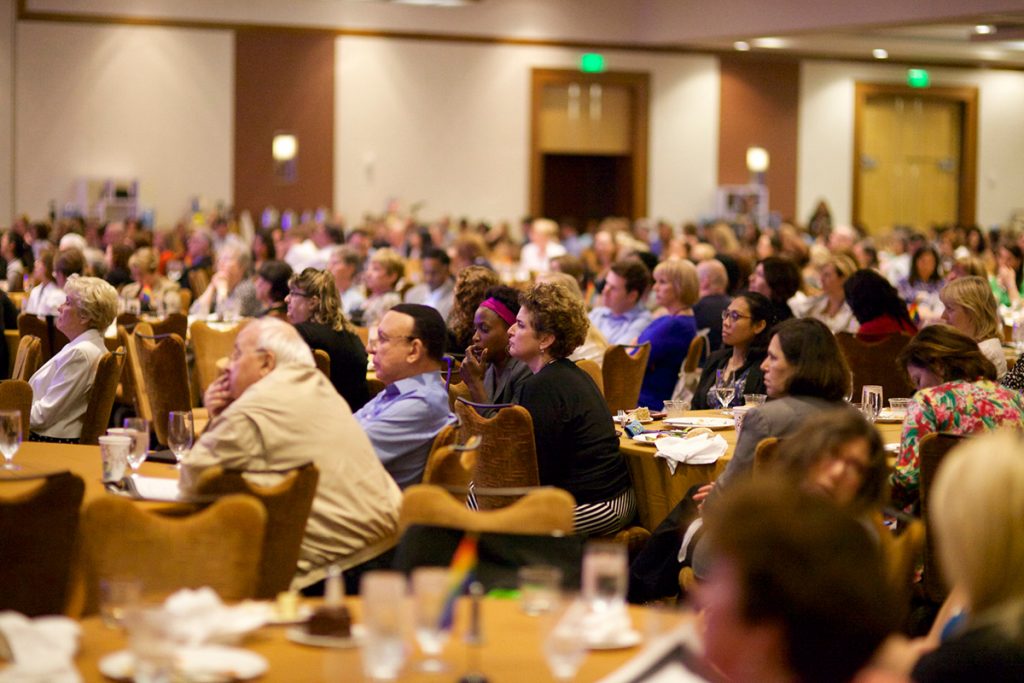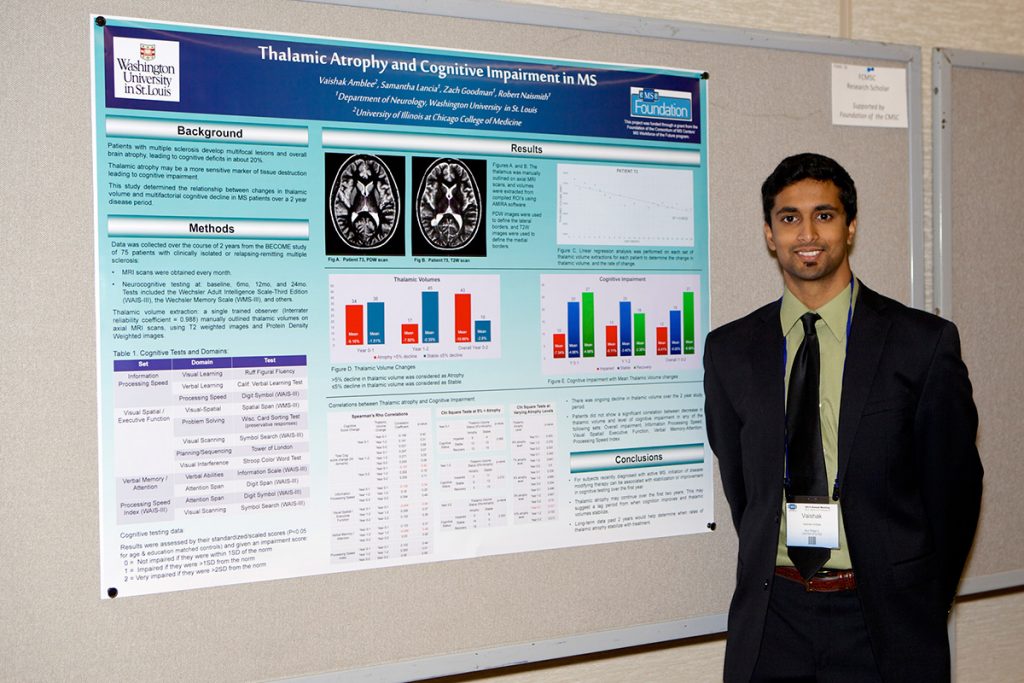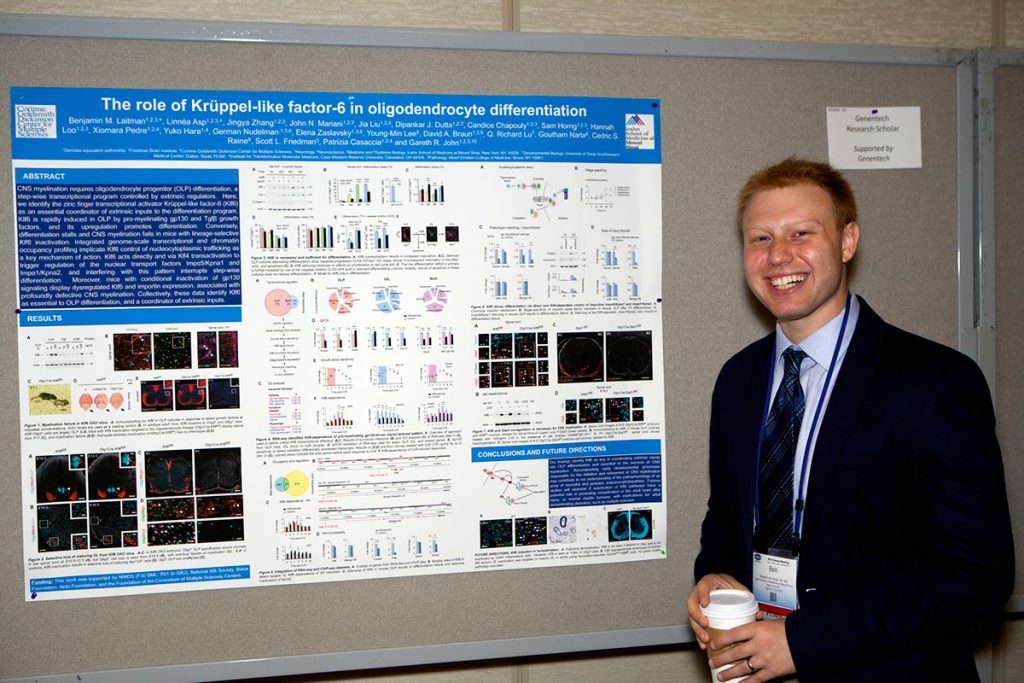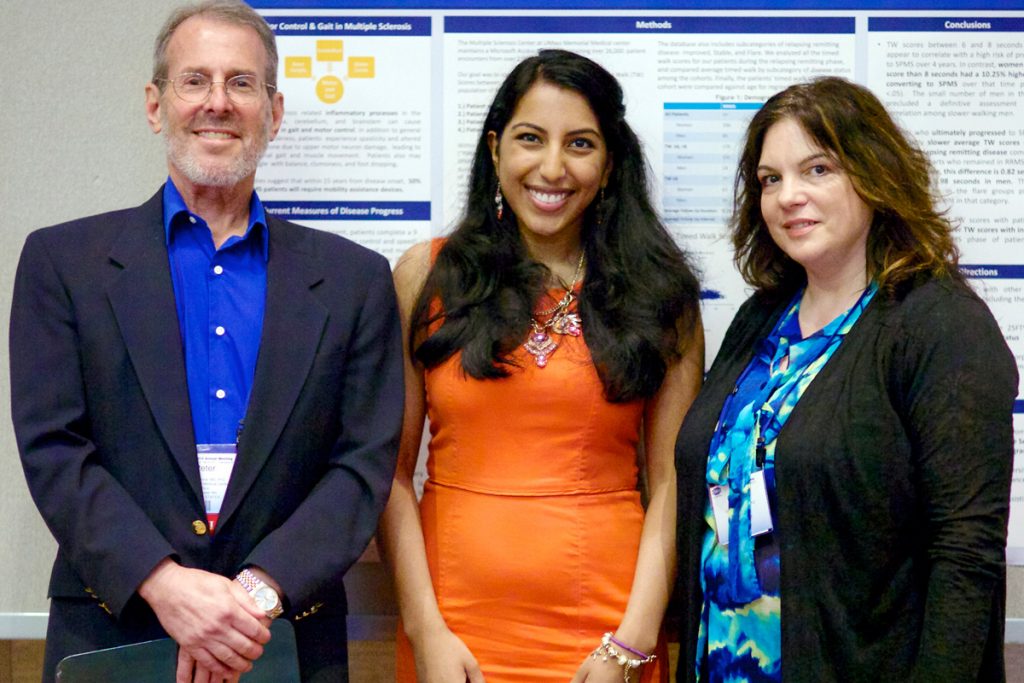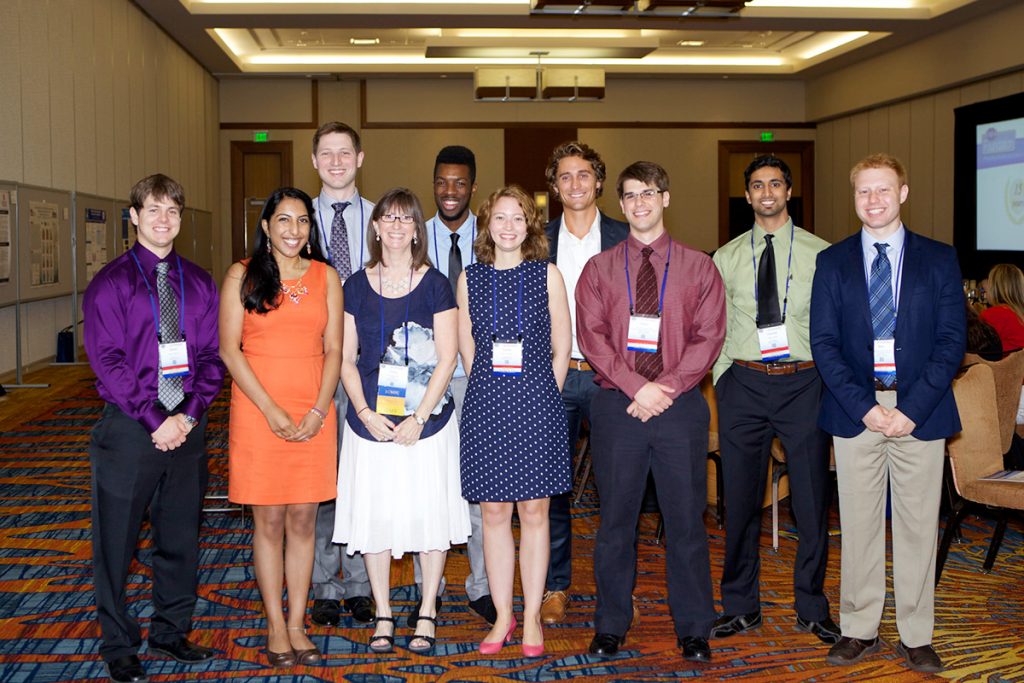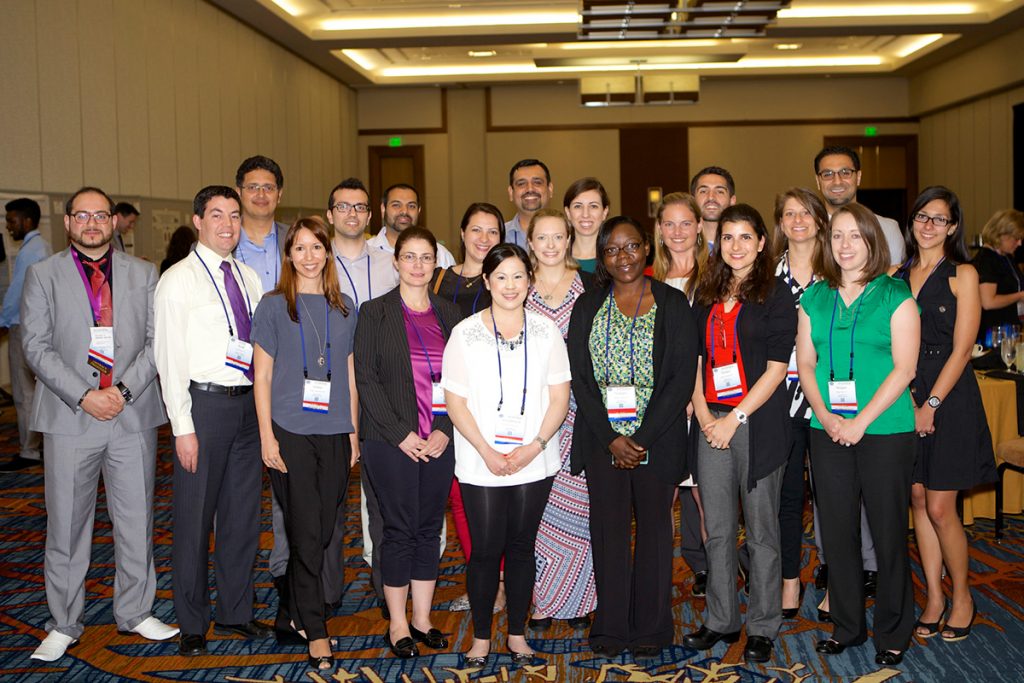Holding The Future Of Multiple Sclerosis Care In Their Young Hands
When I was invited to be the first official blogger at the Consortium of Multiple Sclerosis Centers (CMSC) annual meeting in Indianapolis I knew I’d have to take my patient hat off and put my press one on. That’s something I’ve been able to do, for the most part, when I write about MS. But after living with MS for almost 30 years sometimes it’s impossible to completely remove my patient hat, particularly when I’m over-the-moon about something that will have a positive impact on the MS community.
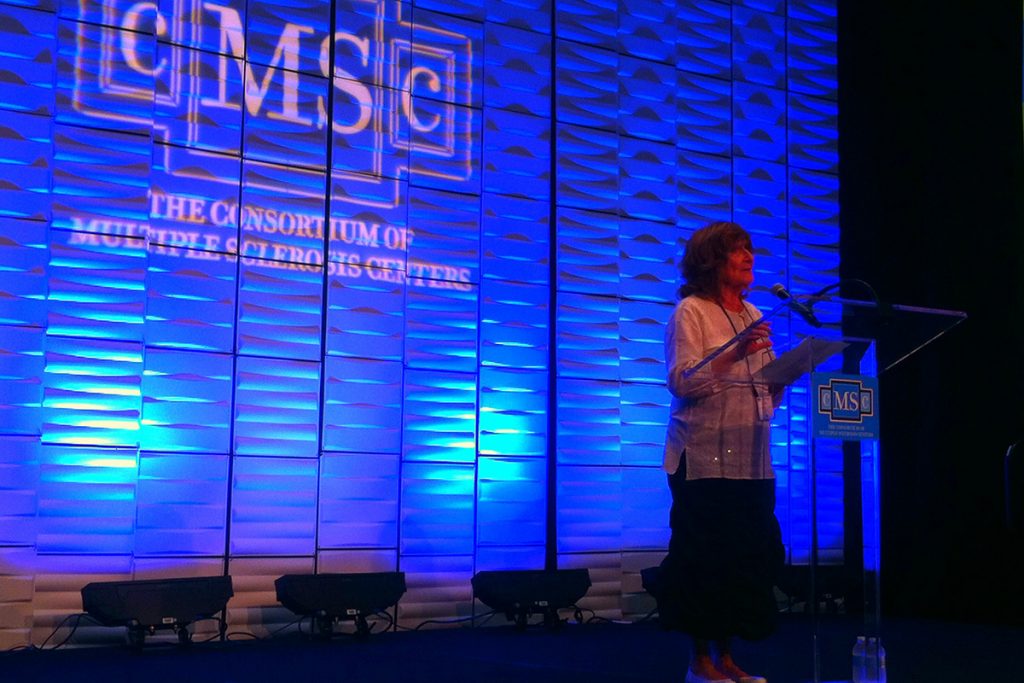
June Halper, CEO of The Consortium of Multiple Sclerosis Centers, welcoming attendees to the 29th CMSC Annual Meeting in Indianapolis
One of the reasons I was over-the-moon was when I learned more about the Foundation of the Consortium of Multiple Sclerosis Centers (FCMSC), a not-for-profit organization that supports CMSC in three “mission-driven” projects:
- MS Workforce of the Future: Driving mentored research scholarships and opportunities to improve patient care in the future,
- Tools for MS Professionals Today: Providing annual awards and tools for CMSC members helping patients today,
- MS Research and Resources: Offering Research Fellowships and awards, expansion of CMSC Pilot Research grants as well as growth of the CMSC Global MS Patient Registry.
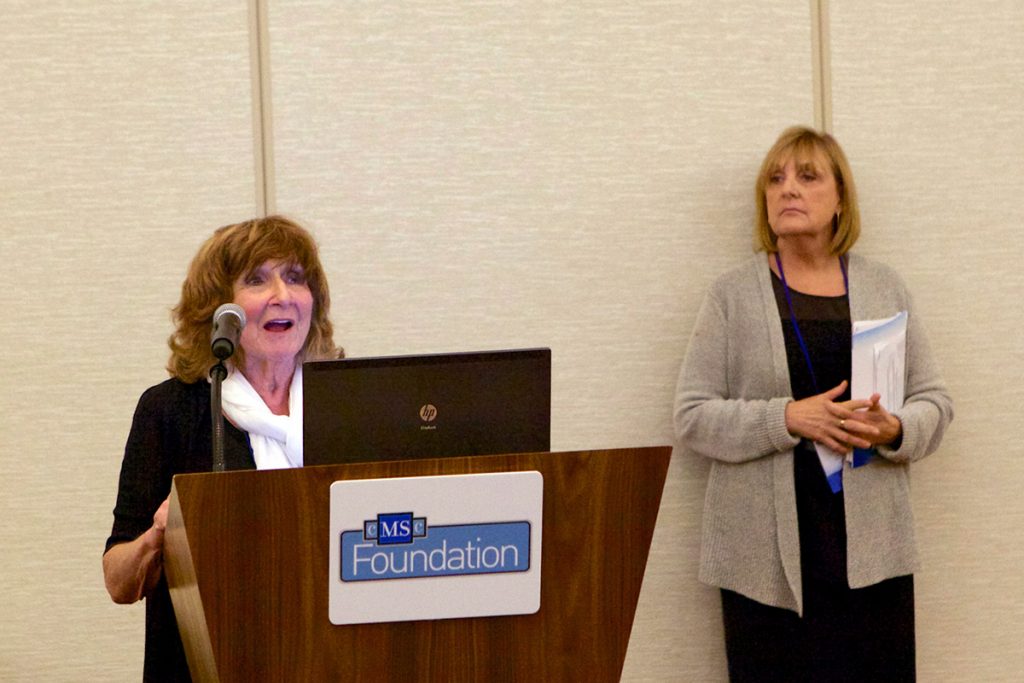
June Halper introducing Judy Katterhenrich, Executive Director of the Foundation of CMSC, at the FCMSC luncheon
As cliché as it sounds I had tears in my eyes when I attended the FCMSC luncheon in Indianapolis and met some extraordinarily gifted and dedicated young medical students and residents who are committed to finding ways to improve the lives of people with MS. They are our future and will dedicate their professional lives to discovering new ways to help the MS community feel, walk and be better.
NOTE: The following 5 photos show five of many posters illustrating work performed by the mentored medical students/residents which gave attendees a chance to interact and ask questions of them to gain a better understanding of their projects. It was a phenomenal opportunity for us.
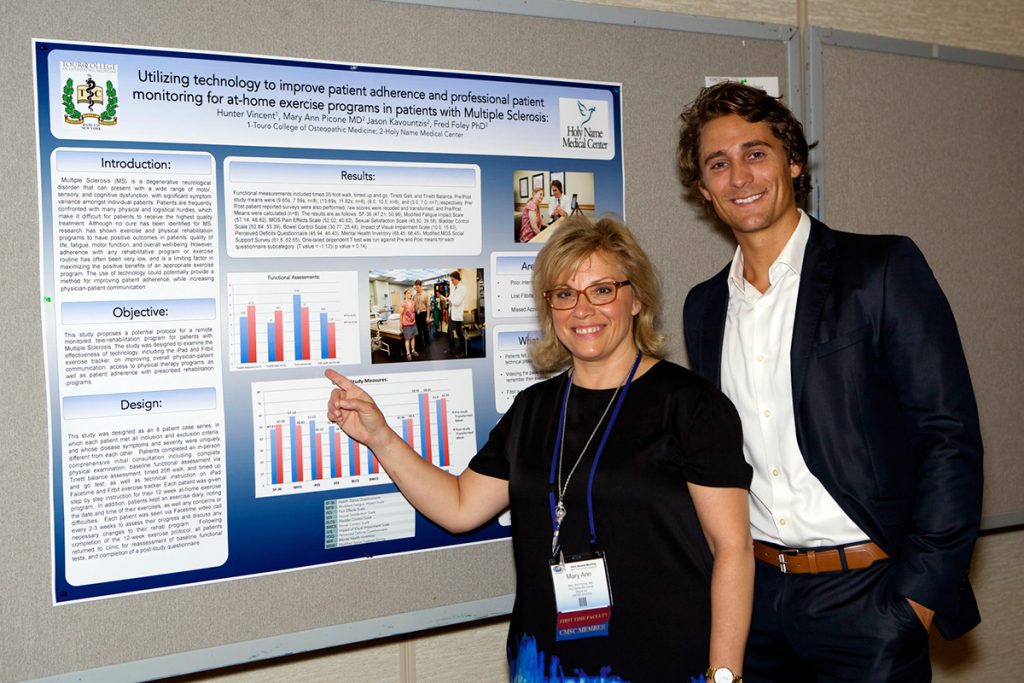
This smiling mentor was my doctor for almost 20 years! I loved this project of using technology to help patients follow an exercise regimen in the convenience of their own home.
Now the world I’ve imagined seems a step closer to becoming a reality. A world where my generation and subsequent ones will know less about fatigue, spasticity and pain and more about rejoining the lives they were meant to live
As I listened to some of the residents’ stories I not only felt renewed hope but it also provided me with a few Kleenex moments.
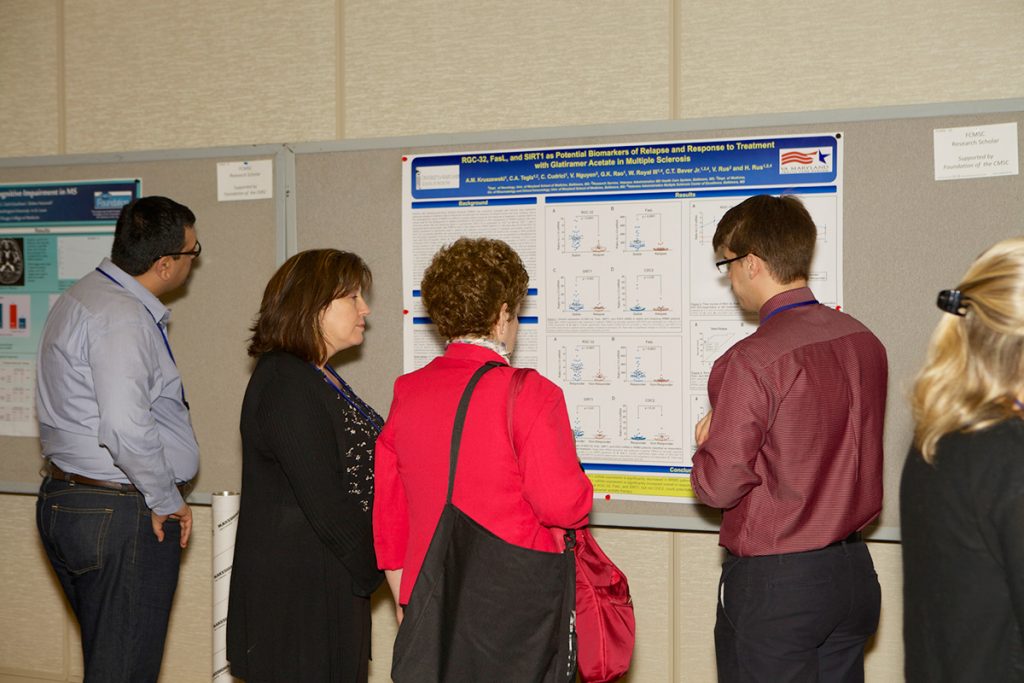
My friend Annie Scully (PR Consultant for CMSC) and I speaking with one of the residents about his work
I thought it’d be worthwhile to ask the Executive Director of FCMSC, Judy Katterhenrich, to answer a few questions about The Workforce of the Future and FCMSC. Then you’ll have a better grasp about why I was moved to tears.
CC: Judy, can you explain to readers what FCMSC is?
JK: The FCMSC was founded to stimulate the growth, development and provision of patient care services, education and research in the field of MS, and also to enhance the quality of life of those affected by it.
We are a distinctly separate non-profit entity from the CMSC but we collaborate closely in our planning to serve the mission of the CMSC membership in fundraising for specific strategic objectives.
This year I am proud to say we have awarded over 400 FCMSC scholarships, awards for excellence, and fellowships. We are very excited about this because our strategic focus is to encourage and develop the MS Workforce of the Future.
CC: What does FCMSC do to develop the MS Workforce of the Future?
JK: We provide expert mentorship and trainee opportunities to the future MS Workforce through student research scholarships, training for neurology residents, rehabilitation therapy graduate students, and MS-specific fellowships.
We are very proud of the MS Workforce Development program, as it allows us to expose trainees to training not available within their home institutions and interaction not only with people with MS, but mentorship by the very top tier of MS experts across North America.
We have committed to our supporters to follow these promising individuals for at least five years as they choose their career paths. We know that over 50% of those surveyed do stay in the MS field.
All of our “alumni” receive a greater understanding of the challenges of MS. From my personal experience and informal discussions with leaders in the field, it takes a personal spark, a personal example of mentorship to give trainees the passion for MS research and MS care.
I love the fact that we now see prior medical students, residents and rehab trainees working in MS Centers themselves as our “next generation” of the MS Workforce. It’s really a very tangible and rewarding outcome to see their enthusiasm.
CC: What awards are given by FCMSC for excellence in work performed in the field of MS?
JK: The FCMSC has secured funding for two annual awards in clinical care and research that is presented every year at the CMSC annual meeting:
- The Labe Scheinberg Award, honoring the late Labe Scheinberg, MD, recognizes the annual meeting abstract best epitomizing interdisciplinary teamwork in the delivery of neurorehabiltation and comprehensive care.
- The Whitaker Award for MS Research recognizes the work of promising young clinician-scientists.
CC: Since FCMSC is a non-profit what challenges do you face to continue the work you are doing?
JK: We are dependent on funding for all of our projects. We have a unique fund-raising challenge. Unlike many of our partner organizations out there in the MS community, we cannot point directly to an immediate and direct effect such as patient programs or provision of devices, etc.
We do know, though, that it takes a committed, impassioned team of people who REALLY care about what they do every day, who understand the unpredictable nature of MS.
When attending the CMSC meeting you see recognizable faces who, regardless of their prestige or their level of position, never stop learning or caring.
What is really exciting is that we can now see the Foundation making a true difference in new faces that are starting to provide clinical care and do research. Some of these individuals will be the stars in the MS community tomorrow, and may be answering the important questions about MS.
We work throughout the year to secure funding from corporate sources, family foundations and through individual contributions. What we accomplish depends on our level of funding each year.
We’re a lean organization with one full-time person and two of us who are part-time. Our fundraising event that takes place at the annual meeting helps a bit, but we’re constantly searching for the means to keep these activities going.
Our website has many of the personal stories of our past awardees and scholars, and it’s easy to donate through our Friends of the Foundation program.
To learn more about The Foundation of Multiple Sclerosis Centers click here.
CMSC is the preeminent organization of Multiple Sclerosis health care providers who work tirelessly to improve the lives of patients with MS. Their annual meeting brings together groups from all over the world – neurologists, radiologists, physiatrists, other medical specialists, clinical researchers, scientists, nursing professionals, rehabilitation specialists, mental health professionals, members of the non-profit community and corporate sponsors – who teach and learn from each other about the latest findings about MS. To learn more about CMSC click here.
All photos are the property of Consortium of Multiple Sclerosis Centers.

